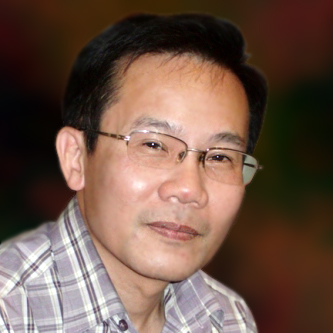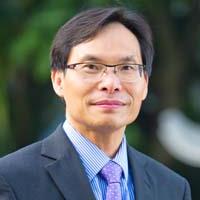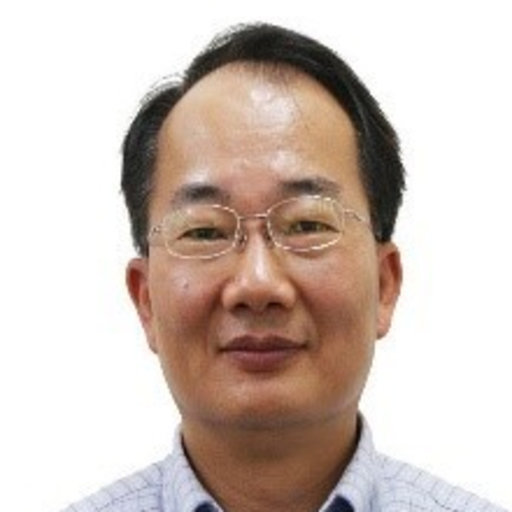PLENARY SPEECH 1
 |
Professor Nguyen Ngoc Thanh
Full Professor of Wroclaw University of Science and Technology
Head of Department of Information Systems
Chair of IEEE SMC Technical Committee on Computational Collective Intelligence
Email: Ngoc-Thanh.Nguyen@pwr.edu.pl
|
Nguyen Ngoc Thanh is a state professor of Poland and Vietnam, and a full professor of Wroclaw University of Science and Technology, and the Head of Information Systems Department in the Faculty of Computer Science and Management. His scientific interests consist of collective intelligence, knowledge engineering, inconsistent knowledge processing, and multi-agent systems. He has edited more than 30 special issues in international journals, 52 books and more than 50 conference proceedings. He is an author or co-author of 5 monographs, more than 400 journal and conference papers and 2 patents. Prof. Nguyen serves as Editor-in-Chief of International Journal of Information and Telecommunication (Taylor&Francis), Transactions on Computational Collective Intelligence (Springer), Vietnam Journal of Computer Science (World Scientific) and International Journal of Intelligent Information and Database Systems (Inderscience). He is also an Associate Editor-in-Chief of Applied Intelligence (Springer) and Associate Editor of several prestigious international journals. He was a General Chair or Program Chair of more than 40 international conferences. He serves as an expert of National Center of Research and Development and European Commission in evaluating research projects in several programs like Marie Sklodowska-Curie Individual Fellowships, FET and EUREKA. He has given 20 plenary and keynote speeches for international conferences, and more than 40 invited lectures in many countries. In 2009 prof. Nguyen was granted of title Distinguished Scientist of ACM. He was also a Distinguished Visitor of IEEE and a Distinguished Speaker of ACM. He serves as the Chair of IEEE SMC Technical Committee on Computational Collective Intelligence. Prof. Nguyen is a member of The Committee on Informatics of the Polish Academy of Sciences and The Council of Scientific Excellence of Poland. His homepage: http://staff-ksi.pwr.edu.pl/nguyen/
PLENARY SPEECH 2
Talk title: Learning Based Video Coding by Data-driven Techniques and Advanced Models
Abstract:
In June 6th 2016, Cisco released the White paper[1], VNI Forecast and Methodology 2015-2020, reported that 82 percent of Internet traffic will come from video applications such as video surveillance, content delivery network, so on by 2020. It also reported that Internet video surveillance traffic nearly doubled, Virtual reality traffic quadrupled, TV grew 50 percent and similar increases for other applications in 2015. The annual global traffic will first time exceed the zettabyte(ZB;1000 exabytes[EB]) threshold in 2016, and will reach 2.3 ZB by 2020. It implies that 1.886ZB belongs to video data. Thus, in order to relieve the burden on video storage, streaming and other video services, researchers from the video community have developed a series of video coding standards. Among them, the most up-to-date is the High Efficiency Video Coding(HEVC) or H.265 standard, which has successfully halved the coding bits of its predecessor, H.264/AVC, without significant increase in perceived distortion. With the rapid growth of network transmission capacity, enjoying high definition video applications anytime and anywhere with mobile display terminals will be a desirable feature in the near future. Due to the lack of hardware computing power and limited bandwidth, lower complexity and higher compression efficiency video coding scheme are still desired. For higher video compression performance, the key optimization problems, mainly decision making and resource allocation problem, shall be solved. In this talk, I will present the most recent research results on machine learning, deep neural network and reinforcement based video coding. This is very different from the traditional approaches in video coding. We hope applying these intelligent techniques to vide coding could allow us to go further and have more choices in trading off between cost and resources.
Speaker:
 |
Professor. KWONG Tak Wu Sam
Chair Professor of Computer Science
Department of Computer Science, City University of Hong Kong
Vice President Cybernetics, IEEE SMCS
E-mail: cssamk@cityu.edu.hk
|
Sam Kwong received B.Sc. degree from the State University of New York at Buffalo, Buffalo, NY, in 1983, the M.A.Sc. degree in electrical engineering from the University of Waterloo, Waterloo, ON, Canada, in 1985, and the Ph.D. degree from the Fernuniversität Hagen, Germany, in 1996. From 1985 to 1987, he was a Diagnostic Engineer with Control Data Canada, where he designed the diagnostic software to detect the manufacture faults of the VLSI chips in the Cyber 430 machine. He later joined Bell Northern Research as a Member of Scientific Staff working on the Integrated Services Digital Network.
Kwong has extensive experience managing university Computer Science departments and academic publications. He is the associate editor of leading top 5% IEEE transaction journals based on the recent JCR report, such as IEEE transactions on Evolutionary Computation, the IEEE Transactions on Industrial Informatics, and the IEEE Transactions on Industrial Electronics. He also served as Head and Professor of the department of Computer Science, City University of Hong Kong, from 2012 to 2018. He is currently a chair professor of Computer Science Department of City University of Hong Kong.
He has coauthored three research books, eight book chapters, and over 300 technical papers. His book entitled “Genetic Algorithm for Control and Signal Processing” featured pioneering work in applying evolutionary algorithm as an optimization tool for industrial applications such as network intrusion systems, self‐healing multicast network, speech recognition and video coding, and was a bestseller in 1997. In addition, his prolific research publication record has reached over 200 top ranked journal papers, including over 100 IEEE journals. His works have been cited over 18,000 times according to Google Scholar with an h-index of 55. He has filed 13 US patents, of which 6 have been granted. He has been the distinguished lecturer of IEEE SMCS since 2018 and delivers two DL lectures yearly to promote IEEE SMC society and cutting-edge cybernetics technology. He also frequently delivers Keynote speeches in IEEE SMCS supported conferences. In 2014, he was elevated to IEEE Fellow for his contributions to optimization techniques in cybernetics and video coding.
Kwong’s involvement in the multiple facets of IEEE throughout the years has been extensive and committed. He has served as an Invited Speakers for many different IEEE conferences. With respect to SMCS, he serves IEEE SMCS as Hong Kong SMCS chapter chairman, a Board Member, Conference Coordinator, Membership coordinator and a Member of Long Range Planning and Finance Committee, Vice President of Conferences and Meetings, Vice President of Cybernetics. He led the IEEE SMC Hong Kong Chapter to win the Best Chapter Award in 2011 and awarded Outstanding Contribution Awards for his contributions to SMC 2015. Currently, he is the president-elect of IEEE Systems, Man and Cybernetics Society.
PLENARY SPEECH 3
 |
Professor. Yo-Ping Huang
Chair Professor, Department of Electrical Engineering
National Taipei University of Technology Taipei, Taiwan 10608
IEEE SMCS BoG Chair,
the TC on Intelligent Transportation Systems, IEEE SMCS
Email: yphuang@ntut.edu.tw
|
Yo-Ping Huang received the Ph.D. degree in electrical engineering from Texas Tech University, Lubbock, TX, USA. He is currently a Professor in the Department of Electrical Engineering and Director of AIOT R&D Center, National Taipei University of Technology, Taipei, Taiwan, where he served as the Secretary General. He was a Professor and the Dean of Research and Development, the Dean of the College of Electrical Engineering and Computer Science, and the Department Chair with Tatung University, Taipei. His current research interests include fuzzy systems design and modeling, deep learning modeling, intelligent control, medical data mining, and rehabilitation systems design.
Prof. Huang serves as the President of the Taiwan Association of Systems Science and Engineering, IEEE SMCS BoG, Chair of the IEEE SMCS Technical Committee on Intelligent Transportation Systems, Associate Editor of IEEE Trans. on SMC: Systems, Associate Editor of Int. Journal of Fuzzy Systems, and the Chair of the Taiwan SIGSPATIAL ACM Chapter.
He was the Chair of IEEE SMCS Taipei Chapter, the Chair of the IEEE CIS Taipei Chapter, and the CEO of the Joint Commission of Technological and Vocational College Admission Committee, Taiwan. He is an IET Fellow and an International Association of Grey System and Uncertain Analysis Fellow.